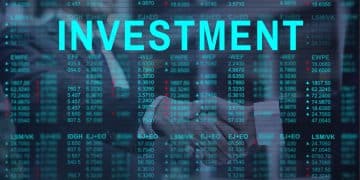7 Steps to Start Investing in the UAE Stock Market Safely
Investing in the UAE: A Global Financial Hub
Investing in the UAE has become an increasingly attractive option for global investors. The United Arab Emirates (UAE) stands as a key player in the world’s financial landscape, offering a diversified economy with thriving sectors such as oil, gas, real estate, finance, and tourism. Strategically positioned between East and West, the UAE continues to attract international trade and investment, driven by the government’s pro-business policies and high levels of stability and growth potential.
Overview and Global Relevance
The United Arab Emirates (UAE) has become a vital hub in the global financial landscape. Its economy is among the most diversified in the Middle East, with strong sectors such as oil and gas, real estate, finance, and tourism. Strategically located between East and West, the UAE facilitates international trade and investment. The government’s pro-business policies continue to attract foreign investors seeking security and growth opportunities.
Key Features of the UAE Stock Exchange
The UAE is home to two main stock exchanges: the Dubai Financial Market (DFM) and the Abu Dhabi Securities Exchange (ADX). These exchanges offer:
- High liquidity across a range of sectors
- Advanced technological infrastructure for fast and secure transactions
- Strong corporate governance and market transparency
- Simplified processes for foreign investors to open accounts
These features create a competitive, investor-friendly environment recognized worldwide.
Unique Opportunities for International Investors
Investors can benefit from the UAE’s:
- Growing and diversified economy: With a focus on emerging sectors such as tech and renewable energy
- Access to regional markets: The UAE serves as a gateway to the Middle East, Africa, and South Asia
- Favorable tax environment: With tax exemptions and treaties to avoid double taxation
Together, these advantages make the UAE a highly attractive destination for global investors.
Structure of the UAE Financial Market
Main Stock Exchanges
- Dubai Financial Market (DFM): Established in 2000, known for transparency and innovation. It lists equities, bonds, and financial instruments.
- Abu Dhabi Securities Exchange (ADX): Also founded in 2000, the ADX emphasizes efficiency and investor protection through strict regulations.
Leading Sectors and Notable Companies
Key sectors include:
- Energy: Dominated by major players like ADNOC (Abu Dhabi National Oil Company)
- Telecommunications: Led by companies such as Etisalat and du
- Banking and Finance: Noteworthy institutions include Emirates NBD and First Abu Dhabi Bank
Market Regulation and Oversight
The UAE markets are regulated by the Securities and Commodities Authority (SCA), which ensures alignment with international standards, enforces anti-money laundering policies, and fosters investor confidence.
| Feature | Description | Key Benefits |
|---|---|---|
| Stock Exchanges | The UAE has two main exchanges: Dubai Financial Market (DFM) and Abu Dhabi Securities Exchange (ADX), both with strong liquidity and technological infrastructure. | High liquidity, advanced tech, investor-friendly, transparency |
| Diversified Economy | The UAE’s economy spans sectors like energy, tech, tourism, and finance, providing vast opportunities for investment. | Wide range of sectors, growth potential, tech and renewable energy focus |
| Tax-Friendly Environment | The UAE offers no personal income tax, no capital gains tax, and corporate tax exemptions in free zones. | Tax exemptions, no capital gains tax, corporate tax incentives |
| Foreign Investment Process | Foreign investors can open brokerage accounts with required documentation such as passport, proof of residence, and bank reference. | Easy account setup, transparency, security |
| Regulatory Environment | The Securities and Commodities Authority (SCA) ensures compliance with international standards, anti-money laundering policies, and market integrity. | Investor confidence, strict regulations, anti-money laundering safeguards |
Opening an Investment Account in the UAE
Requirements for Foreign Investors
To invest in the UAE, international investors typically need:
- A valid passport
- Proof of residence (e.g., utility bills or bank statements)
- A bank reference letter
Step-by-Step: How to Open a Brokerage Account
- Choose a licensed brokerage registered with the SCA
- Fill out the application form provided by the selected broker
- Submit required documents, including identification and proof of residence
- Verification process: The broker will validate your documents and perform due diligence
- Account approval and activation: Once verified, your account will be ready for trading
Essential Documents
- Passport (original and copy)
- Proof of residence (dated within the last 3 months)
- Bank reference letter
These documents ensure compliance with UAE regulations and prevent financial crimes.
Investment Strategies in the UAE Market
High-Potential Sectors
When evaluating opportunities, focus on:
- Energy: Still a key pillar of the UAE economy
- Tourism and infrastructure: Supported by large government initiatives
- Technology: Rapidly expanding due to innovation-driven policies
Diversification and Risk Management
To minimize risk:
- Diversify across industries
- Monitor oil prices and the real estate market closely
- Use derivatives and hedging instruments for protection against market volatility
Local Business Practices
Cultural awareness and relationship-building are vital. Understand local business etiquette and maintain updated knowledge of evolving regulations to align your strategy effectively.
Investment Alternatives: ETFs and Mutual Funds
Gaining Exposure Through ETFs
Exchange-Traded Funds (ETFs) allow investors to tap into the UAE market without directly managing a portfolio. Options include sector-specific ETFs that track energy, banking, or infrastructure performance.
Pros and Cons of Investing via International Funds
Advantages:
- Professional management
- Broader geographic diversification
- Simpler legal and operational processes
Disadvantages:
- Management fees
- Less control over specific asset selection
- Indirect exposure to local market dynamics
Direct vs Indirect Investment
- Direct investment: Offers more control, lower fees, and the ability to tailor your portfolio
- Indirect investment: Provides ease of access, automatic diversification, and expert guidance
Understanding these options helps align your investment approach with your risk tolerance and financial goals.
Legal and Tax Considerations
Tax System for Foreign Investors
The UAE is a tax-friendly environment. Highlights include:
- No personal income tax
- No capital gains tax on most investment returns
- Corporate tax exemptions in free zones (sometimes up to 50 years)
Compliance and Market Regulations
The SCA oversees market integrity through strict compliance frameworks. Financial institutions must regularly report and undergo audits. Foreign investors are subject to:
- Background checks
- Identity verification procedures
- Anti-money laundering safeguards
International Agreements
The UAE has signed:
- Bilateral Investment Treaties (BITs): Protect investors from unfair treatment and ensure profit repatriation
- Double Taxation Treaties (DTTs): Prevent the same income from being taxed twice
These agreements enhance security and appeal for foreign capital.
Practical Tips and Recommendations
To succeed in the UAE stock market:
Stay Informed on Regulatory Updates
Keep up with policy changes from the SCA and other financial authorities to avoid legal issues.
Select a Reliable Brokerage
Choose a licensed and reputable broker with a strong track record and positive reviews.
Diversify Your Portfolio
Balance your investments across various sectors such as real estate, tech, energy, and tourism.
Follow Economic and Political News
Government initiatives, infrastructure projects, and regional events can affect markets—stay updated.
Build Local Connections
Networking and professional advice can offer unique insights. Consider attending investment conferences and seeking local expertise.
To read more content on the subject see here





